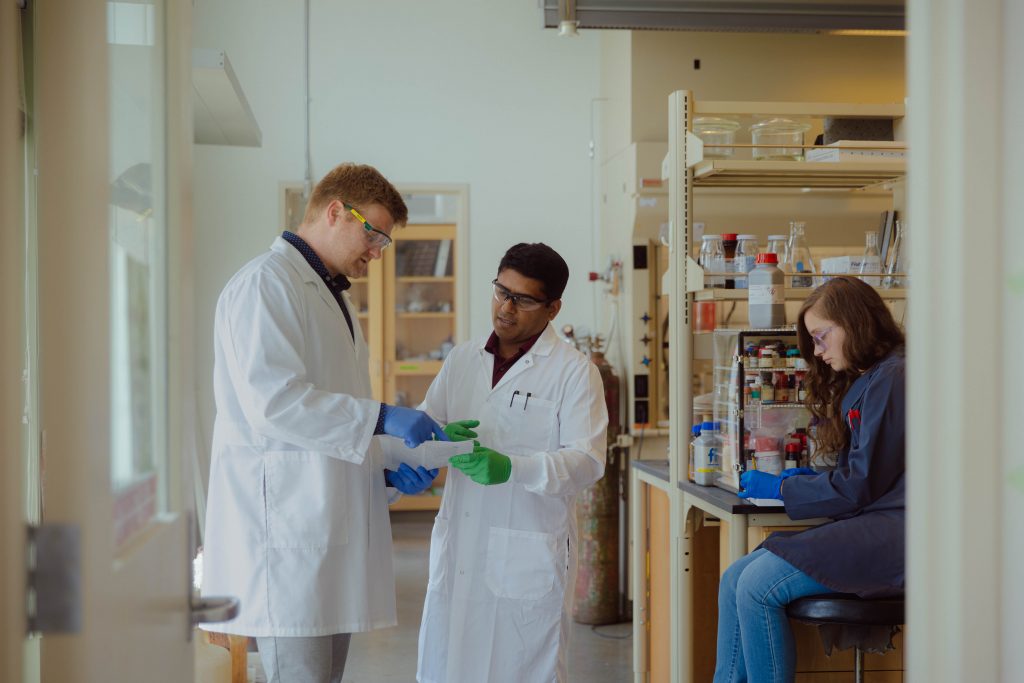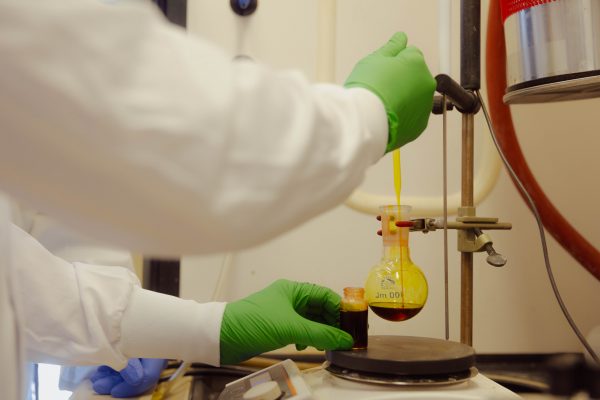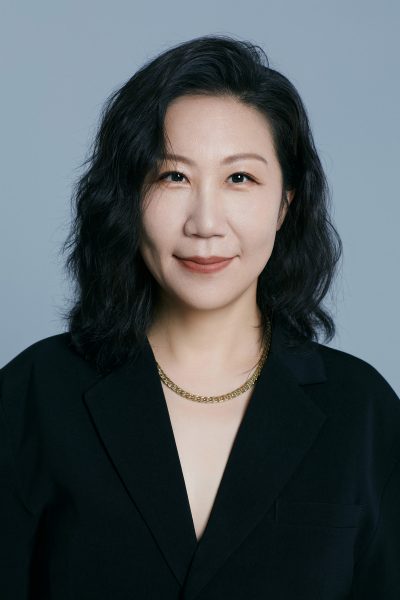
Two associate professors and their research teams have been awarded the Frontier Science Fund in the College of Liberal Arts and Sciences (LAS) for notable scientific research. Brett VanVeller, associate professor of chemistry, specializes in chemistry peptides, and Wei Le, associate professor of computer science, researches how AI and new technology can be used in the medical research world.
The Frontier Science Fund was created in 2021 to allow LAS scientists to pursue new avenues of high-risk, high-reward research that results in positive societal consequences. The fund was established by alumni Tom (’68 geology, MS ’71) and his wife Evonne (’68 textiles and clothing) Smith.
Developing New Ways to Discover Antibiotics
VanVeller and his research team, including Dr. Krishna K. Sharma as co-principal investigator on the project, are developing ways to modify peptide biomolecules in novel ways. With one senior research scientist, seven graduate students, and two undergraduate students, they have been working on this research for nearly seven years.

“What we are trying to do is invent new ways of making molecules that have never existed before. These new approaches open up classes of molecules with unexplored applications as drugs and therapeutics,” VanVeller said.
With this research, VanVeller and Sharma, an expert in drug design and discovery, are trying to use this new chemistry to address the ever-growing threat of antimicrobial resistance, wherein infections become increasingly difficult to treat because microbes no longer respond to existing therapies. The research presents exciting implications for things such as medical chemistry and drug discovery.
“At first you think ‘OK, this is going to work out’ and then you test the experiment, and it suddenly fails. You have to go back and discover why it’s failing and try to address those failures and come up with a new idea to solve the same problem,” Sharma said.
VanVeller and Sharma are excited about the potential of their research. The Frontier Science Fund will allow them to test out several drug designs that have never been attempted before to generate new hypotheses to target bacterial infection.
“Funding like this is important because a lot of the time big ideas start from small ideas,” VanVeller said. “It’s an important area of research and we’re hoping we can make an impactful contribution.”
Taking a new direction with cardiovascular health
Wei Le is also making significant strides with her research. As an associate professor in the computer science department, Le’s research focuses on applying AI to predict cardiovascular conditions. Her research team includes two collaborators from Columbia University with expert knowledge in cardiology and data science.
Le is studying how to predict severe heart conditions using cheaply collected data, such as an electrocardiogram (EKG) or an X-ray.

“This project is working on predicting which patient should receive further invasive, or more expensive exams using very cheap, very accessible equipment available at any clinic,” Le said.
As a computer scientist, she can help hospitals process and analyze data and images. With many hospitals adopting artificial intelligence (AI), she and many other computer scientists around the world can put their skill set to use.
Le will use the Frontier Science Fund to financially support her and her team through the summer months. While Le is an expert in computer science and machine learning and has conducted many kinds of research before, predicting cardiovascular conditions presents a new area of research for her. The fund will help Le settle into a new research direction.
“This research is new for me and new in general. This grant is going to fund those initial results. It’s especially important because it’s connecting computer scientists like me to doctors that specialize in this type of medical research,” Le said.
Le explained that her career is about challenges and transitions. Changing the direction of research is common and helps better understand the nature of research overall.
“It’s a good mindset to have challenges that can present opportunity. This fund is looking for innovative and promising research, and my team and I are excited to see where it ends up,” Le said.